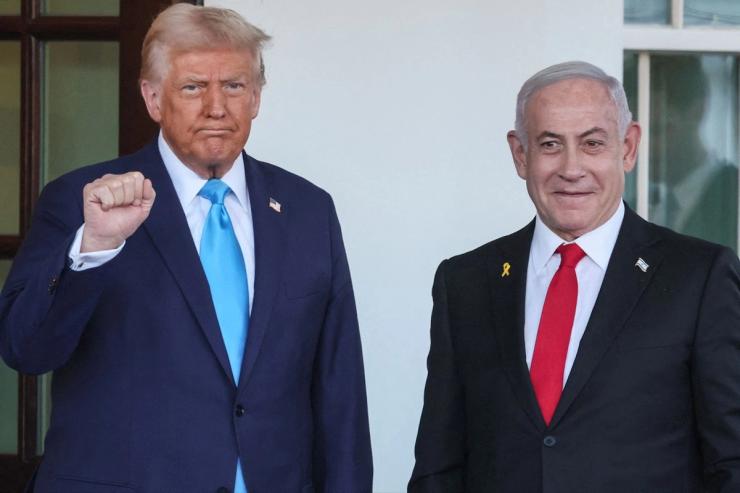US President Donald Trump’s proposal to take over Gaza and resettle Palestinians, framed as an effort to bring peace, has sent shockwaves, as he undoubtedly anticipated. The reality for Saudi Arabia, as Foreign Minister Prince Faisal bin Farhan put it, is that “true security for Israel will come from recognizing the legitimate rights of the Palestinian people.”
Any attempt to separate Palestinian statehood from the broader regional peace process has, so far, only led to further instability. Jordan and Egypt signed peace deals with Israel decades ago, yet Palestinian suffering has deepened. The Abraham Accords of 2020 opened new avenues for cooperation, but the situation didn’t improve in Gaza and the West Bank. Regardless of whether you blame Israel, Hamas, or both, the fact remains: Ignoring Palestinian aspirations has not brought peace.
A Palestinian state would achieve multiple objectives at once: It would grant Palestinians their rights under the UN Charter, delegitimize Hamas and other extremists that use the occupation as justification for terrorism, and might even win Donald Trump a Nobel Peace Prize should he broker the deal. It would also free Israel from the choice of remaining an occupier or becoming an apartheid state under a one-state solution.
Trump’s statements were widely understood on the Arab Street, and globally, as endorsing ethnic cleansing. Such rhetoric, even if unintended, weakens Washington’s standing in the region as a credible mediator, and strengthens that of its foes: Russia and China.
It also embarrasses the standing of regional US allies, particularly those who signed the Abraham Accords in good faith, such as the UAE, Morocco, and Bahrain. Meanwhile, it led the region’s political and religious powerhouse, Saudi Arabia, to issue a statement just minutes after Trump’s press conference, to make clear that Palestinian rights are nonnegotiable.
It is still unclear whether Trump’s remarks were a negotiation tactic, hot air, or a serious policy proposal. They do not seem to have garnered support even within his party. The White House has already tried to soften the backlash. Netanyahu himself said Trump was misunderstood, saying the president meant only those who want to leave should be allowed to.
Peace won’t be achieved with unilateral declarations. Trump should seek the advice of historical regional allies such as Saudi Arabia, Jordan, and Egypt — and not just that of Israel — because peace is a common interest.
Saudi Arabia in particular has explored every possible scenario on making a two-state solution attractive for both sides, and the kingdom’s Ministry of Foreign Affairs has done much of the thinking and heavy lifting through a team led by Manal Radwan. These efforts have buy-in from the Europeans and a global coalition that is willing to support the two-state solution with more than just words. Implementing it could stabilize the region, protect Israel’s security, and offer Palestinians a future beyond conflict.
What about Gaza’s reconstruction? Where will displaced Palestinians settle in the meantime? How do we prevent Hamas from regrouping, or Israel from annexing more land? These are valid concerns, but peace has never come without challenges. The process must begin somewhere, and that somewhere is in recognizing the state of Palestine.
Faisal J. Abbas is an award-winning journalist and Editor-in-Chief of Arab News.

